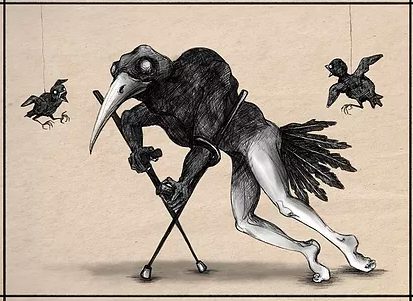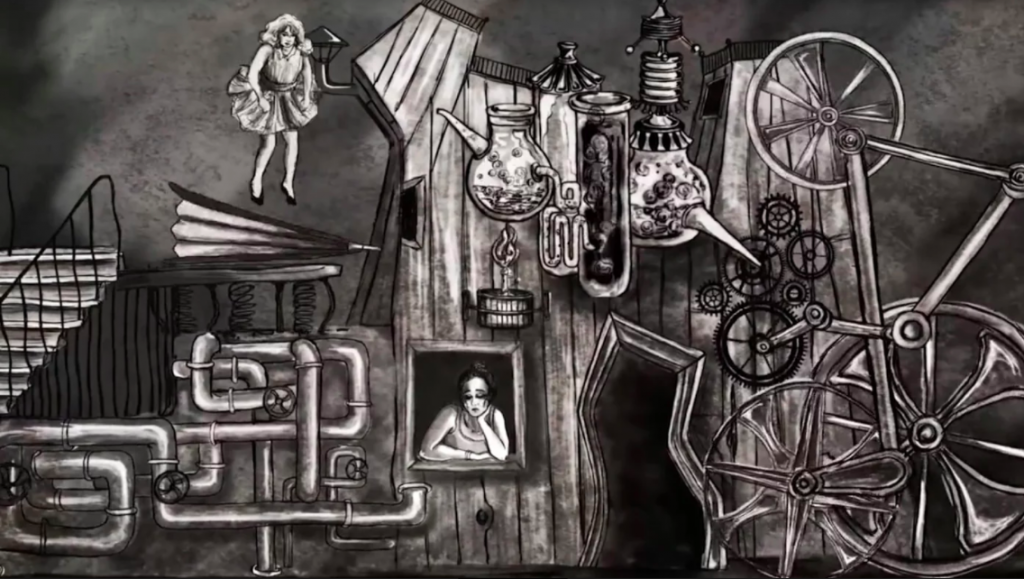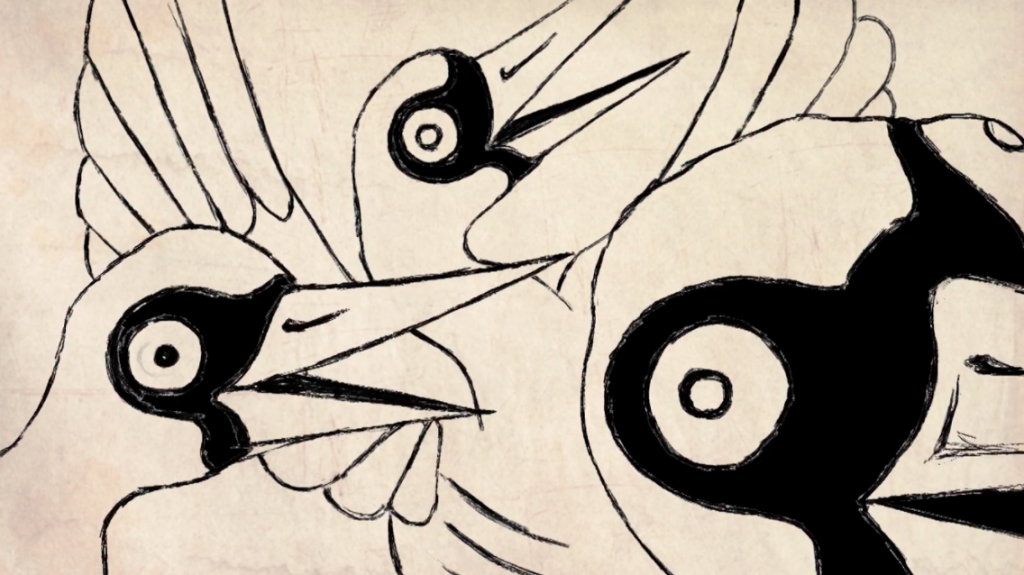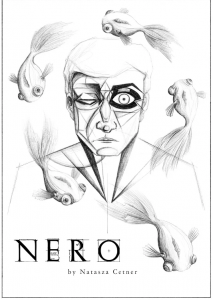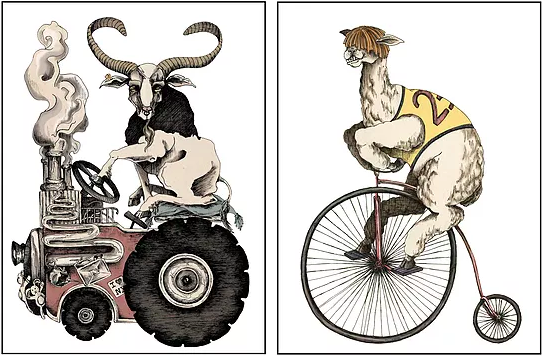Words: Isabella Dawe Subbing: Tracey Popoola
We got to know more about Natasza Cetner, a London-based Polish animator who’s award-winning work explores surrealism and symbolism.
Natasza moved to London in 2014 to study her BA in Animation at the University of Westminster. Since then she has created three short films all of which have been recognised at international festivals, and her animations have received awards both in the U.K. and overseas. Her work is beautiful and sometimes haunting, and she possesses the unique talent of being able to present the ordinary from an intensely interesting perspective.
Where do you draw most influence or inspiration from? What makes you want to create?
I would say that the first thing that springs to my mind is the realistic way of picturing the world and then giving it a powerful twist and turn the whole scene into absurd and grotesque. If you look at my films and illustrations it is clear that I mostly draw inspiration from the surrealism as for me it is one of the most powerful means of conveying the story and moods whilst keeping it universal for many people. As each one of us has a different experience and different backgrounds, I believe that the use of symbols and metaphors is one of the most effective ways to reach the audience. At least that is the most effective one I found so far.
What drives me to create is the hope that my film and my story will influence or inspire at least one person. That is enough for me and I think then in that moment the animation fulfilled its purpose. I want to explore as many techniques and aesthetics as I can during my time of studies here, and of course after that as well. I would love to work on some interesting music videos one day and play with the dynamics of rhythm.
–Talk us through your creative process – how long does it take? What is the hardest part for you?
When it comes to animated films there are few key stages of production. Of course the first thing that happens is the coming up with the idea or finidng the inpirations. Then is the moment when you start working on the storyboards which is something similar to imagining the film as a series of comic strips. Then you would move on to the animatic which is a sketchy version of the film with sountrack and right timing. Next steps would be starting to actually animating shots. Each stage is filled with frustration and nervous breakdowns if I’m honest as you constantly struggle with the dilemma of whether the idea you’re going for is the best one possible. I suppose the most difficult moment for me is the animatic stage when you need to establish the film language and the relationships with the shots as I am a perfectionist so it takes a while to reach a moment where I can stop correcting it.
What is your proudest achievement to date?
So far my second year film “The Three Tales from Alexandria” is doing the best I suppose. Recently it has won the Bronze Medal at Royal Ulster Academy in Belfast at the Annual Exhibition and in the summer it was selected for Best Animation Award at Short Movie Club Festival in Minsk.
I am happy that my BA graduation film “Nero” was nominated for Best Animation Award at Edinburgh Short Film Festival this autumn and also was selected for few significant animation festivals such as Palm Springs International Animation Festival and Ajayu Festival in Peru and exhibited in Venice this summer.
What are you working on at the moment? Do you have anything we should be looking out for?
At the moment I am taking Master’s Degree in Animation at Royal College of Art so I am freshly done with the first term and first projects. Next year I am beginning work on a new film which I am planning to base on a story of a woman who lost or never happened to have a child and this has distorted her perception of reality. The film would be kept in M. C. Escher style when it comes to backgrounds and the perspective of shots as it would emphasise the skewed thoughts of hers. The film should be completed around May and it would end the first year of my MA.
What do you have planned for the future? Being from an EU country, does Brexit affect you or where you might want to work?
I believe that Brexit made all our lives more complicated and we have no idea what to expect in the next few years. So for now, I am going to focus fully on my Master’s Degree and portfolio and learning as much as I can. If the circusmstances become an obstacle I will find some other place where the animation industry is flourishing. I have always considered the Netherlands, Denmark or France. Also Canada is good for animation but for now it’s a bit too far away from my family. I hope that after graduating from the Royal College of Art I’ll start working in an animation studio or start working on interesting commissions such as music videos and installations.
Why study in London, especially because you’re an international student, what drew you here?
People are coming to London because of the enormous possibilities and the fact that you can meet amazing artists from all over the world. As there are countless exhibitions and galleries and screenings you get constantly bombarded by inspirations and ideas. In addition you tend to bond more with people who also left their homelands for their passions as we all have the same goals and ambitions.
Do you ever go out to see other exhibitions or galleries in London? What are your favourites?
When I get the chance to escape for a moment from my projects and deadlines I try to attend screenings of films and galleries such as Tate Modern. One of my favourite places to visit during my BA at University of Westminster was the Victoria & Albert Museum and sketching the sculptures on the ground floor. If I have to think about something in particular which got stands out in my memory then it would be a screening of Dr.Caligari with live organ music in Regent Street Cinema and also the Katsushika Hokusai exhibition at the British Museum this year.
You can watch Natasza’s film “Three Tales of Alexandria” here – It’s “visually inspired by Grimm’s Fairytales” and “reminds us about the dangerous and mysterious side of nature”.

